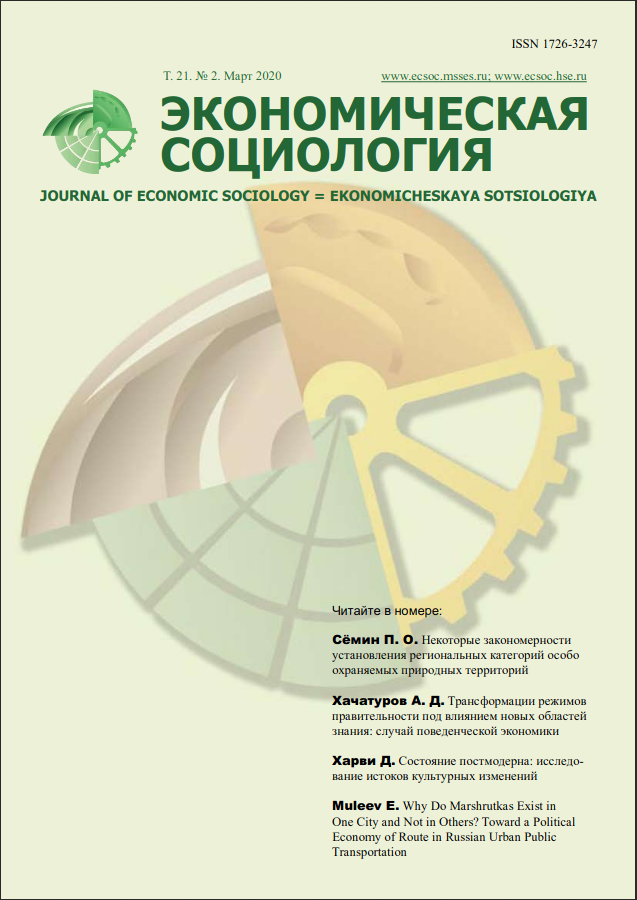Transformations of Governmentality Regimes under the Influenceof New Areas of Knowledge: the Case of Behavioral Economics
Abstract
This article is a review of relevant scientific literature on the consequences of the growing popularity of behavioral economics in the field of public administration and public policy. The main result of behavioral research that arose in the 1970s at the intersection of psychology and economics was the discovery of irrational decision-making mechanisms and the rejection of the traditional economic concepts of human nature. Revision of the axioms of the rational choice theory in turn made possible the emergence of new public policy instruments that can influence unconscious psychological triggers, compensating for the cognitive insufficiency of the governed subjects. An active appeal to cognitive sciences, including behavioral economics, neuroscience, and research in the field of artificial intelligence, is one of the main trends in modern public administration. In many countries, the recommendations of the so-called nudge theory by Richard Thaler and Cass Sunstein are being introduced at the national government level. The question arises whether behavioral economics can become the new paradigm of economic policy, or whether we are witnessing the radicalization of neoliberalism, which is trying to overcome the structural economic problems with the help of new scientific discoveries. Using Michel Foucault’s governmentality analytics and existing research on this topic, the author shows that conceptual changes in economic theory significantly influence the balance of power relations in society. In particular, the pressure of modern cognitive sciences on liberal notions of autonomy, as well as the expansion of the range of psychological tools used to govern the population, sharpen the question of the compatibility of the basic political categories of liberalism and the new technologies of governance. It creates the prerequisites for the formation and strengthening of quasi-authoritarian regimes of power that are able to achieve economic efficiency without appealing to active subjects and personal freedom.













